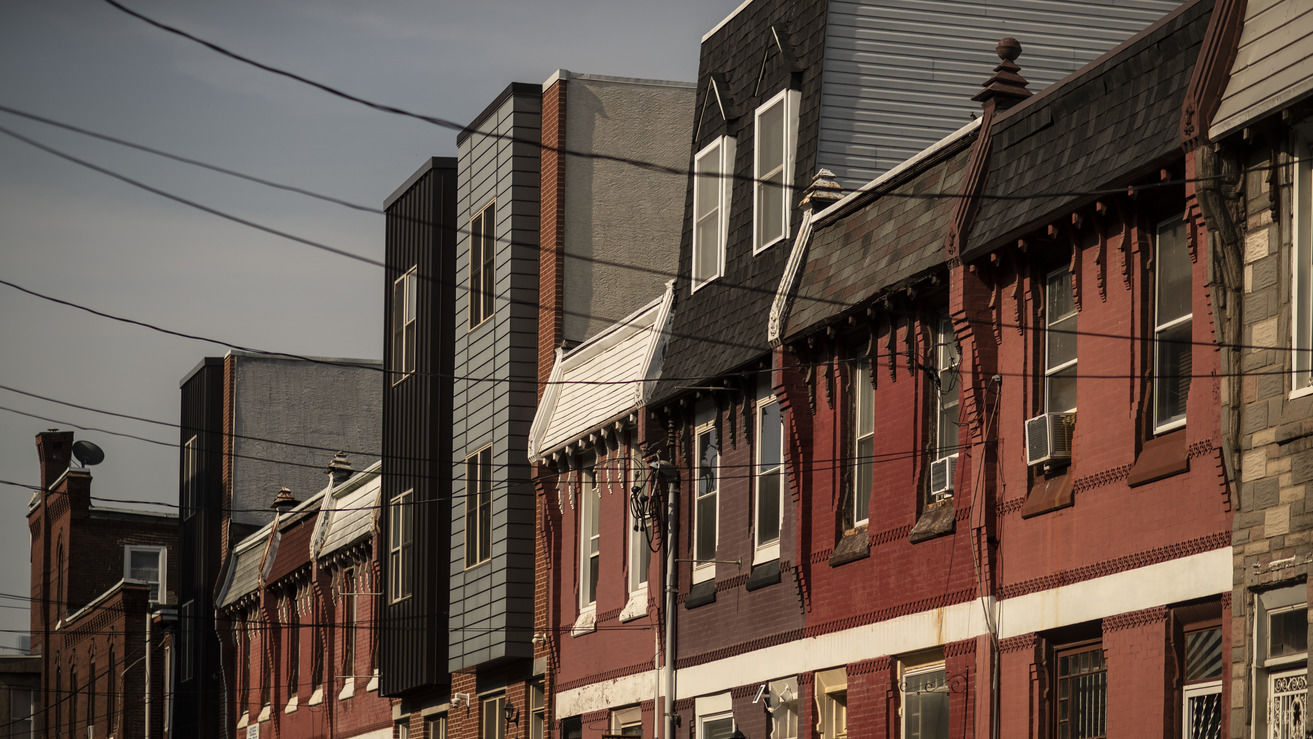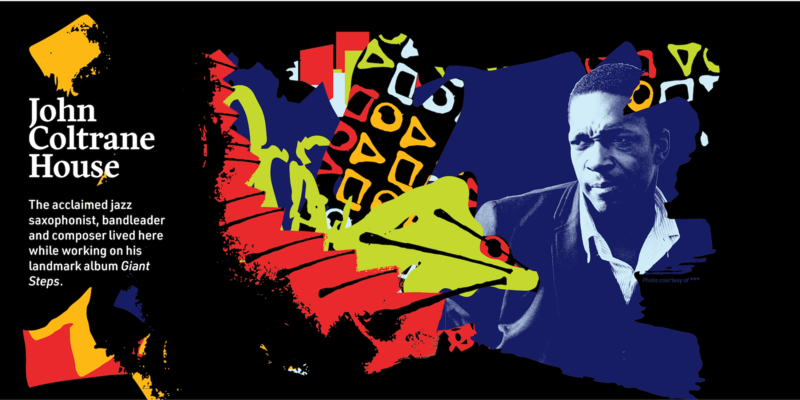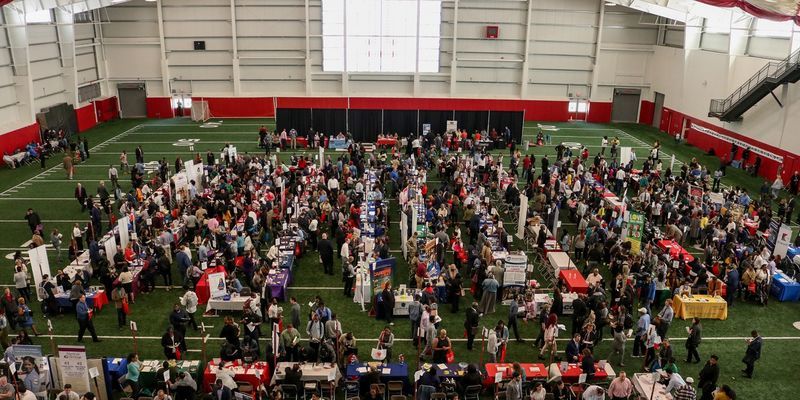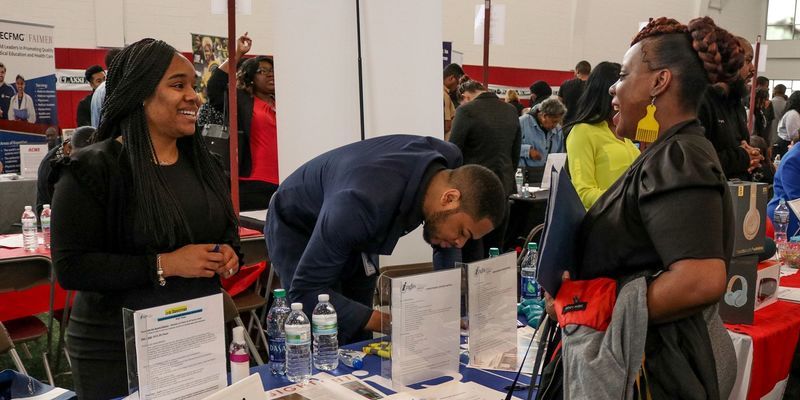New neighborhood resource center set to improve outcomes in North Philly
As part of its holistic approach to combatting gun violence, Temple University will open the Temple Community Gateway this fall, which will serve as a one-stop shop for connecting North Philadelphia community members to resources.

Last year, Temple University’s Violence Reduction Task Force issued its findings and recommendations to university leadership. Chief among those recommendations was the university’s need to develop a comprehensive and coordinated strategy for community engagement efforts focused on violence reduction.
“This is a significant opportunity for an institution like Temple to connect neighborhoods, like North Philadelphia, that have been shaped by a long history of deprivation, disadvantage and other harms, to needed resources,” said Vice President for Diversity, Equity and Inclusion Valerie Harrison last year when the task force issued its report. “As an institution of higher education, Temple is uniquely positioned to provide a platform and support for its faculty, staff and students to bring their expertise to help combat societal problems like gun violence.”
In the months since the task force issued its report, and with the reinforcement of the need for collaborative and community-focused efforts in the report from 21CP Solutions, the university has focused on evaluating, planning and implementing violence reduction strategies. Now, one of the task force report’s most significant recommendations is ready to come to fruition.
This fall, the new Temple Community Gateway will open. It will initially be located at 1510 Cecil B. Moore Ave. right off of Broad Street, and will serve as a one-stop shop where North Philadelphia community members can receive assistance connecting to a number of resources, both at Temple and across the city.
“People subject to the same barriers tend to have similar outcomes. Likewise, people given the same opportunities also tend to get similar results,” Harrison said. “For decades, Temple has used this understanding to help shape intervention models for violence reduction. The university, through its faculty, staff and students, sponsors hundreds of initiatives and programs, many in collaboration with more than 50 community partners, to provide support to people all over the city.”
For example, last year, Temple’s Lenfest Center for Community Workforce Partnerships helped a total of 1,125 individuals secure employment. They also assisted nearly 800 other individuals to earn a high school diploma (230), industry-specific credentials (465) or post-secondary education (75).
“In total, the Temple-Lenfest team served more than 3,000 people with adult education programs, job training and other programs. And most of those persons are our neighbors right here in North Philly,” Harrison said.
One of the challenges that people have, however, is simply being able to access these various services. That is where the Temple Community Gateway center can be of assistance.
“This is a place where members of the community can walk right in and receive guidance and assistance connecting with services and resources. We are doing in North Philly what Philadelphia’s Civic Coalition to Save Lives is doing on a citywide level,” Harrison added. “Bringing together a vast network of resources and services, and then providing a ‘warm handoff’, or an active, supportive facilitation, so that people are directly connected to the services and resources that they need.”
For instance, if a community member needs to know how they can pursue adult education or job training opportunities at Temple, the Community Gateway can help with that. If they need help with an application for food assistance, the center will be able to walk them through that process. If they want to see how they can benefit from the services of the innovative Philadelphia CeaseFire and Cure Violence movement, the center can help with that, too.
A number of positions that will support the center’s work are currently in the hiring process. One of those is the universitywide violence prevention effort coordinator, who will be charged with organizing and elevating the current campus inventory of community engagement efforts and building a platform to coordinate, expand, communicate and sustain community engagement efforts related to violence prevention.
“From what I have found, this coordinator position is really unique to higher education,” said Caterina Roman, a professor in the Department of Criminal Justice who is a key voice in structuring and focusing Temple’s anti-violence efforts. “I have not found another university that has anything like this, and that also speaks to Temple’s commitment to innovative community engagement.”
Temple continues to make additional strides as part of its long-term, holistic efforts to impact the complex issue that is gun violence.
This month, acting President JoAnne Epps and City Council President Darrell L. Clarke convened the first meeting of the leadership group of the Community-Temple Partnership Safety Zone. The meeting came after Clarke introduced a resolution to City Council that called for both Temple and the city to partner to create a task force that would work to address the underlying factors that contribute to violence.
This initiative, which brings together representatives of a wide array of city agencies and Temple resources, was an important recommendation from the 21CP report, “Recommendations for Community Safety at Temple University and the Temple University Police Department,” authored by 21CP Solutions, Ramsey’s firm.
The innovative, community-focused anti-gun violence work of Temple University Hospital and Temple Safety Net also continues. The programs there have saved thousands of lives, and the work continues to grow, now in collaboration with the Civic Coalition to Save Lives.
The coalition recently submitted a proposed panel for South by Southwest 2024, an annual conference that showcases cutting-edge innovation and creativity at the intersection of art, science and business. Their proposed panel, A Proven Playbook to Reduce Gun Violence and Save Lives, would feature Amy Goldberg, dean of the Lewis Katz School of Medicine and co-founder of the Temple Safety Net programs; Estelle Richman, executive director of the Civic Coalition to Save Lives; Sharmain Matlock-Turner, chief executive officer of the Urban Affairs Coalition; and Pastor Carl Day of the Culture Changing Christians Worship Center in Philadelphia. Together, the group would discuss how civic and government leaders, community-based organizations, and trauma centers are working together to disrupt the cycle of gun violence, saving lives and communities.
Temple University Hospital also recently received additional grant money from the Civic Coalition to Save Lives, which will be used to further enhance its many hospital violence intervention programs that are offered through Temple Safety Net. The grant can be used for temporary/short-term housing, self-care/wellness for staff, conferences, retreats and discretionary funds for client support.


